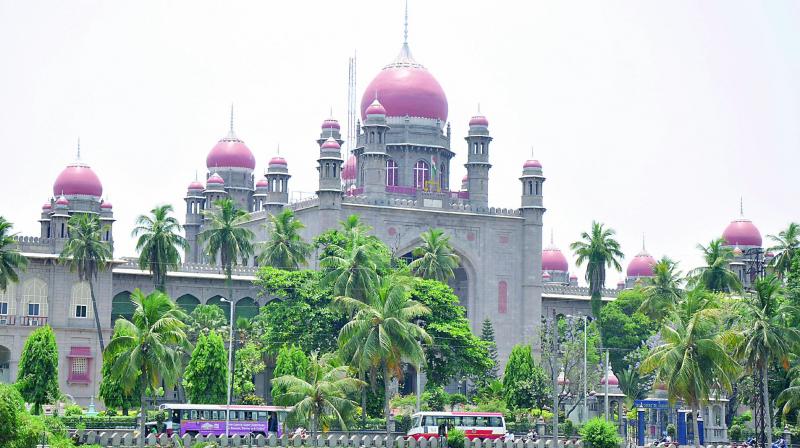Why use old civic law for polls: Telangana High Court

Hyderabad: The Telangana High Court wondered why the state government was holding municipal elections under the provisions of the repealed Telangana Municipalities Act 1965 and 1994, despite issuing an ordinance to amend the municipal laws on June 28 and subsequently passing a new law.
The Telangana High Court on Wednesday directed the state government to place before it the municipal laws amendment ordinance for its perusal.
A division bench comprising Chief Justice Raghavendra Singh Chauhan and Justice Shameem Akther was dealing with two PILs filed by Mr Anju Kumar Reddy and Dr S. Malla Reddy, seeking a stay of the pre-poll process. They contended that the government had not followed the Municipalities Acts.
When the bench came to know that the state had completed the pre-poll process as per the old laws, it asked why the government had convened a special session of the Assembly and passed the new Municipalities Act.
Additional Advocate General J. Ramachandra Rao said the new Act had not secured assent of the Governor. An ordinance had been issued for some amendments to the old Act.
Petitioners’ counsels T. Surya Karan Reddy and Ch. Naresh Reddy objected to the state deciding to hold the elections under the old law.
Earlier, Justice Chauhan asked the AAG why the government had drastically reduced the time given to completing the pre-poll process when it had asked a single judge for 119 days. The single judge had given 109 days to complete the process. “How can the state complete it in eight days,” Justice Chauhan asked.
“The state has to tell the reasons for the drastic reduction of time. Is it permissible or a colorable exercise of the state to reduce the time,” the Chief Justice asked. The bench said it would send the wrong signals to the voters and general public that the state was in “hot haste.”
The Chief Justice posed several questions about the process of delimitation of wards, which was the key issue raised by the petitioners.
The bench asked what factors were considered by the authorities to delimit the wards and how long they had taken to consider objections.
The court went through the section-wise provisions of the Act that cover the delimitation of wards and merger of villages into municipalities and asked the state to show that it had followed them.
When junior counsel for the State Election Commission tried to explain that the new Municipalities Act, 2019 and an ordinance had been placed after the pre-poll process had commenced, the bench said it was the duty of the government to explain.
The PILs were adjourned to August 16 for further hearing.

